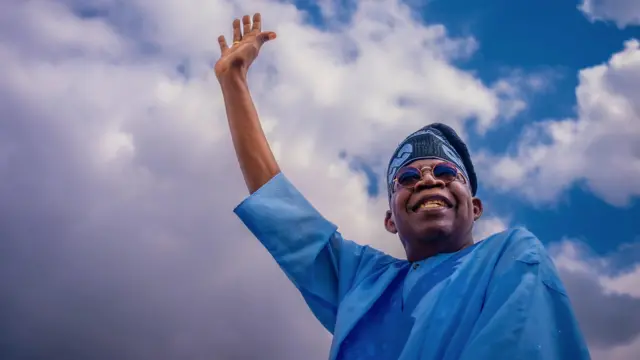Nigeria’s democracy on Tinubu’s leash, by Ikechukwu Amaechi
Post By Diaspoint | October 10, 2024

A find piece by Ikechukwu Amaechi
As a journalist, I admire carto[onists, the visual artists who draw and create engaging captions, for their genius. They are not only creative and original, but also investigative, often incorporating humour, wit and satire in their works. When they are in their element, they graphically capture the imagination of the audience, as the trending cartoon in the BUSINESSDAY newspaper showing President Bola Tinubu having his day in the sun with his four ‘dogs’ – agbero, judiciary, INEC, police – has done.
“I will not be running in 2027 election… I can walk comfortably,” Tinubu crowed. It was simply ingenious, such that a senior journalist who forwarded it to me gushed: “I have never seen a more meaningful cartoon.”
It aptly illustrated the phenomenon of “state capture,” and why many Nigerians believe that 2027 is already a done deal for Tinubu. The cartoon also illustrates what it means to have capacity in Nigerian politics, a euphemism for political brigandage. The idea of having political structure, which is what the absolute control of the umpire, judiciary, state and non-state actors typifies, is nothing other than the criminalisation of the democratic space.
Our democracy has become a game not birthed in the rule of law and the value of decency but a game where the rule of strong men has become the norm. Anyone who is in doubt should dispassionately analyse what happened in Rivers State before, during and after last Saturday’s local government poll.
The judiciary and police – the primary law enforcement agencies – have aided INEC in making a complete mess of Nigeria’s democracy. Under President Tinubu’s watch, a Nigerian judge ordered the Nigeria Police Force to abdicate its constitutional responsibility as the principal law enforcement and lead security agency in Nigeria and violate Section 4 of the Police Act and Regulations by shirking its responsibilities of prevention and detection of crime, apprehension of offenders and preservation of law and order.
Read More from original source
